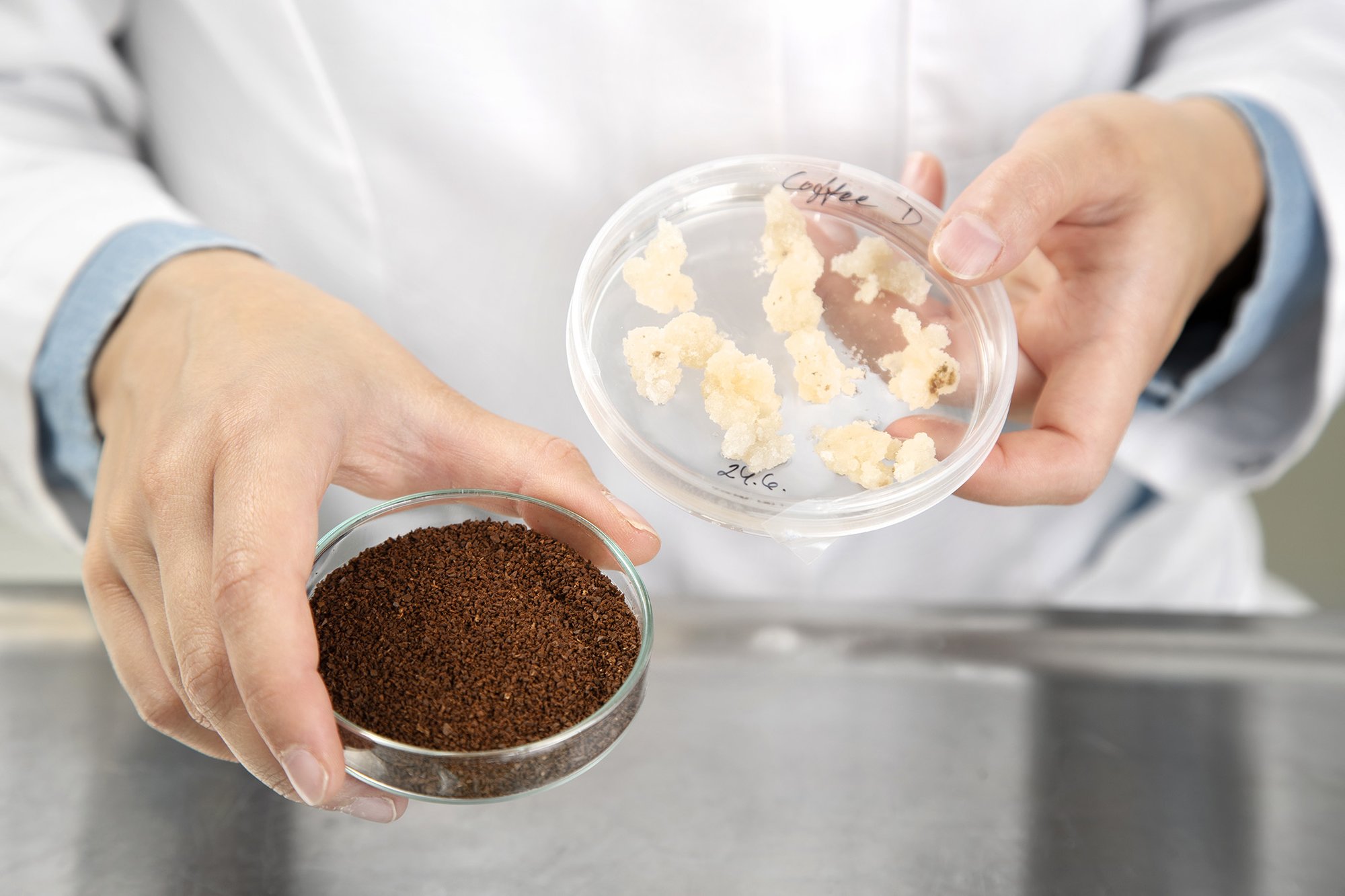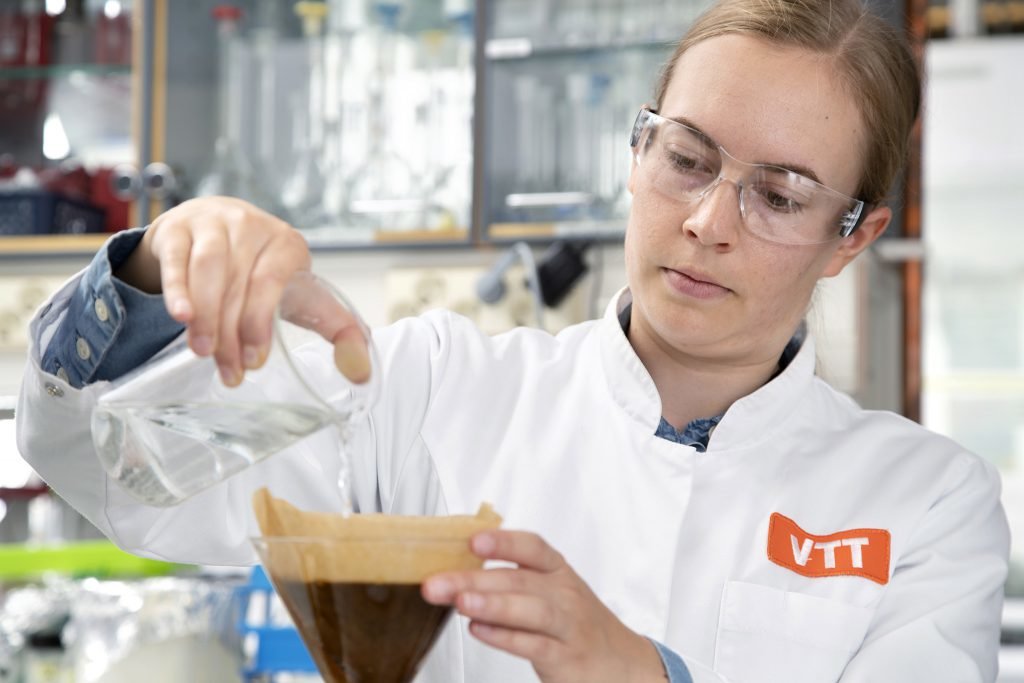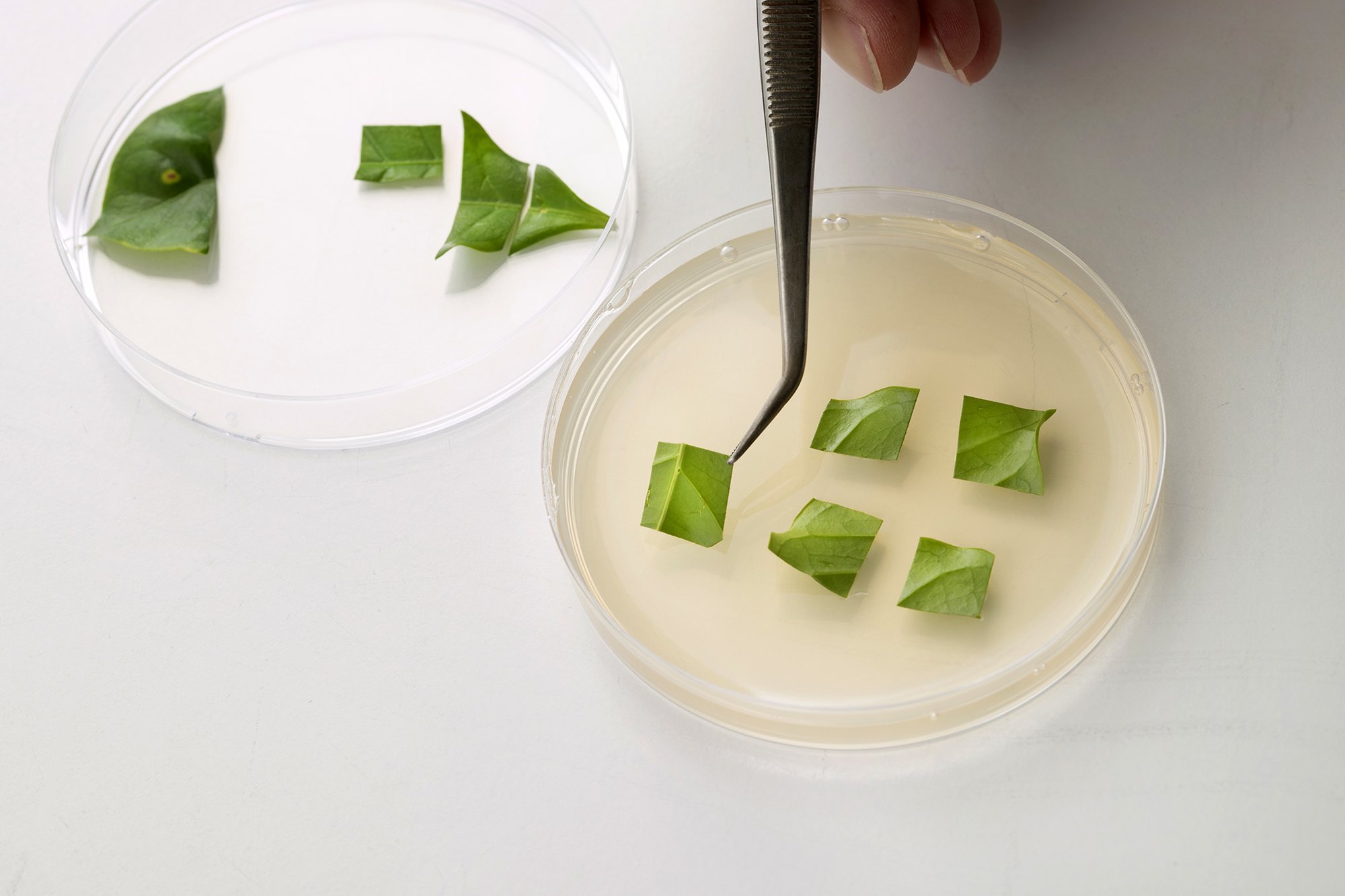Lab Coats and Bioreactors: Is This the Answer to Sustainable Coffee Production?

Coffee cell cultures, right, and roasted coffee produced by VTT’s cellular agriculture method. Photo courtesy of the VTT Technical Research Centre of Finland.
When frost hit many of Brazil’s major coffee-growing regions in July 2021, coffee prices on the commodity futures market swiftly went haywire. At the time, Brazil, the largest producer of coffee globally, was still recovering from a devastating drought that crippled many of the coffee-producing regions.
Industry professionals began to worry that climate change would create more extreme weather events like those, hindering coffee production for years to come.
With increasing demand and numerous sustainability challenges facing traditional coffee agriculture, there is a pressing need for alternative ways to produce coffee.

Marking a breakthrough in cellular agriculture, researchers at Finland’s VTT Technical Research Centre have successfully produced coffee cells in a bioreactor. Bioreactors are vessels built to provide effective environments for enzymes or whole cells to transform biochemicals into products.
The groundbreaking scientific process uses cell cultures, which float in bioreactors filled with a nutrient medium, to produce various animal- and plant-based products.
Per capita, Finnish people consume more coffee than any other nation in the world — explaining the country’s diversion of resources into the coffee industry.
The innovation may help make the production of coffee more sustainable. The first coffee batches VTT produced in the laboratory in Finland smelled and even tasted like conventional coffee.
“At VTT, this project has been part of our overall endeavor to develop the biotechnological production of daily and familiar commodities that are conventionally produced by agriculture,” Heiko Rischer, a VTT research team leader, said in a statement. “For this, we use many different hosts, such as microbes, but also plant cells.
According to VTT’s website, “The work was started by initiating coffee cell cultures, establishing respective cell lines in the laboratory and transferring them to bioreactors to begin producing biomass. After analyses of the biomass, a roasting process was developed, and the new coffee was finally evaluated by VTT’s trained sensory panel.”
At last, a taste test is in order. “The experience of drinking the very first cup was exciting,” Rischer said. “In terms of smell and taste, our trained sensory panel and analytical examination found the profile of the brew to bear similarity to ordinary coffee. However, coffee making is an art and involves iterative optimization under the supervision of specialists with dedicated equipment. Our work marks the basis for such work.”

Currently, all coffee material produced in laboratory conditions is considered experimental food and would require regulatory approval by the Food and Drug Administration to be marketed and sold to consumers in the United States. In Europe, lab-grown coffee should first be approved as Novel Food before being marketed.
VTT estimates it is only four years away from securing regulatory approval and ramping up commercial production.
Because of the high demand for coffee worldwide, the VTT research team hopes that advances in coffee sustainability may one day aid in protecting coffee-producing regions affected by deforestation, such as the world’s tropical rainforests.
Read Next:

Kelly Getzelman is a former staff writer for Coffee or Die Magazine. A retired Navy SEAL chief petty officer, Getzelman has nearly two decades of special operations experience and is always ready to ship out on his next epic coffee adventure.
BRCC and Bad Moon Print Press team up for an exclusive, limited-edition T-shirt design!
BRCC partners with Team Room Design for an exclusive T-shirt release!
Thirty Seconds Out has partnered with BRCC for an exclusive shirt design invoking the God of Winter.
Lucas O'Hara of Grizzly Forge has teamed up with BRCC for a badass, exclusive Shirt Club T-shirt design featuring his most popular knife and tiomahawk.
Coffee or Die sits down with one of the graphic designers behind Black Rifle Coffee's signature look and vibe.
Biden will award the Medal of Honor to a Vietnam War Army helicopter pilot who risked his life to save a reconnaissance team from almost certain death.
Ever wonder how much Jack Mandaville would f*ck sh*t up if he went back in time? The American Revolution didn't even see him coming.
A nearly 200-year-old West Point time capsule that at first appeared to yield little more than dust contains hidden treasure, the US Military Academy said.












